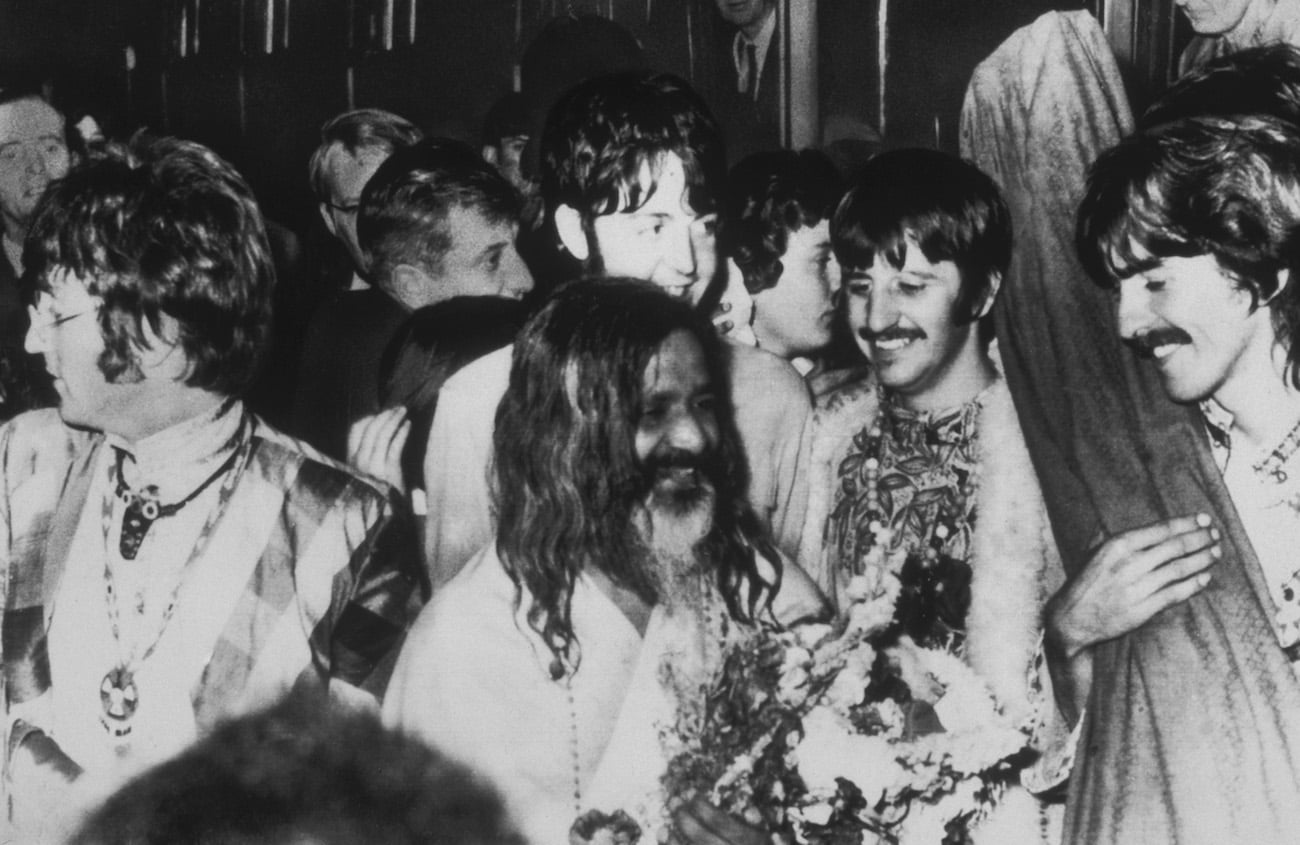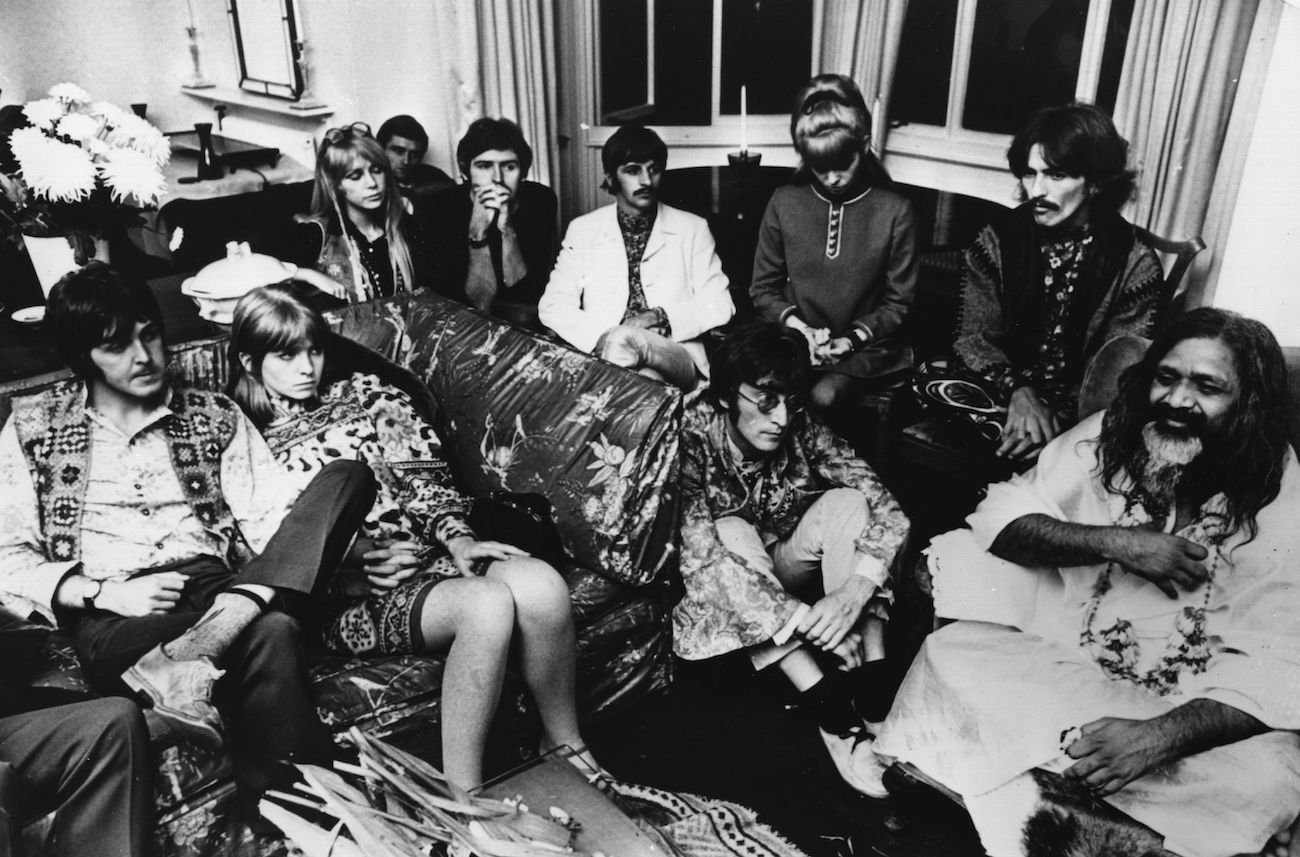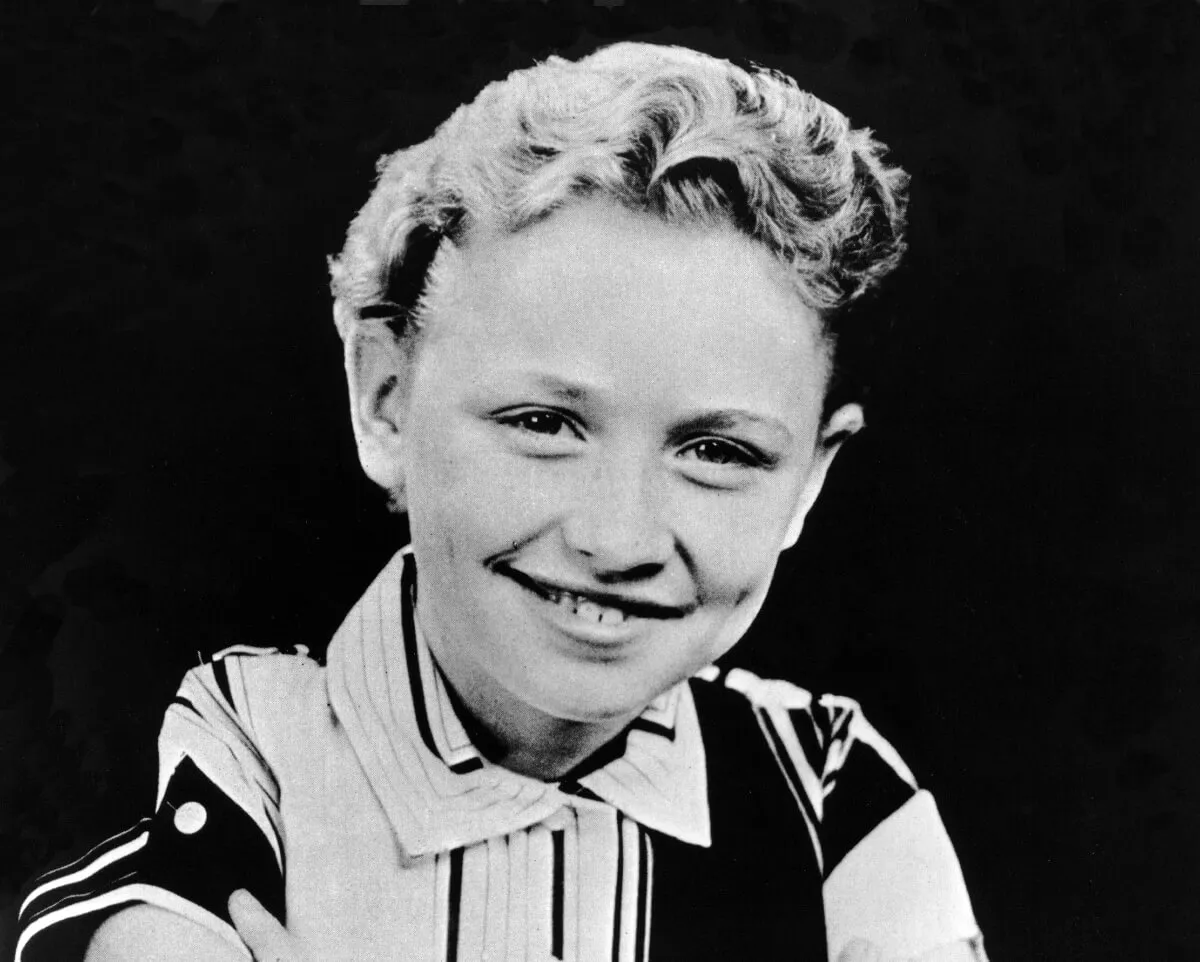
The Maharishi Mahesh Yogi Believed The Beatles’ Music Would Improve if They Learned His Meditation Techniques
The Maharishi Mahesh Yogi believed The Beatles‘ music would improve if they learned his meditation techniques. The guru was almost naively confident, but the group didn’t trust him for long.
The Beatles first heard the Maharishi speak in London. They’d entered a period of self-reflection and wanted to know more about spirituality, so the guru’s words struck a chord with them.
However, they soon learned that the Maharishi was a bit full of himself.

The Maharishi Mahesh Yogi gave The Beatles a password to the other world
In Here Comes The Sun: The Spiritual And Musical Journey Of George Harrison, Joshua M. Greene wrote that the Maharishi Mahesh Yogi earned a degree in physics from Allahabad University before turning to the study of meditation.
In 1958, he moved to the U.K. and founded the Spiritual Regeneration Movement, which taught “fundamentals of yoga, breathing, and mantra meditation.”
George had already begun his spiritual journey in 1965 after taking LSD and learning from Ravi Shankar, but he wanted more. He knew he needed a mantra, “a password to get through into the other world,'” Greene wrote. George hoped the Maharishi could relay that important message.
When The Beatles first heard the guru speak in London, he’d already initiated 10 thousand people into a technique he called Transcendental Meditation. He claimed that if everyone meditated with their mantra, wars and destruction would cease to exist.
“The word ‘mantra,’ he said, is comprised of two parts: man (mind) and traya (liberation), and repeating a mantra calms the mind and brings inner peace,” Greene wrote. “Wars, epidemics, famines, and earthquakes were all symptoms of tension, he said, as contagious as any other disease.
“If even one percent of the world’s population followed this easy method of meditation, it would be enough to reduce tension and dispel the clouds of war for thousands of years.”
After his lecture, Maharishi invited The Beatles to his retreat in Wales. There, the Maharishi gave The Beatles a word or syllable. “Over time, he added more words or syllables until the pieces fit together to form one of India’s traditional mantras,” Greene wrote. “He took George aside, then his mates, and whispered a mantra in their ears.”
The Maharishi believed something good would happen to the band if they meditated with his mantras.
The Maharishi Mahesh Yogi thought The Beatles’ music would get better if they used his form of meditation
When The Beatles were on the train to Wales with the Maharishi, the guru told them they would find his meditation technique quite convenient, like funds in a bank. “You don’t have to carry money around with you,” he said, “just make a withdrawal when needed.”
Greene wrote, “What if you’re greedy, asked John, and want another meditation after lunch and another after tea? His question sent the Maharishi into fits of laughter.”
That trip didn’t end so well with the death of their manager, Brian Epstein. However, shortly after, the Maharishi announced another retreat at his ashram in Rishikesh, India.
Greene wrote, “Prompted partly by a desire to put sadness over Epstein’s death behind them, partly by their natural spirit of adventure, and partly by a curiosity to better understand George’s fascination with meditation, they agreed.”
However, the Maharishi naively believed that the group was more invested than they were. George was the most interested. The other three were skeptical and only went to get away from the hounding press.
The Maharishi was hopeful, though. If The Beatles’ music improved because they were using his meditation techniques, he’d become even more internationally famous. It would spread his word like never before.
“I am very excited that the Beatles will shortly follow me to Indian shores in order to further study Transcendental Meditation,” the Maharishi told reporters at Madison Square Garden before a lecture in January 1968. “Because of the conscious mind expansion brought on by meditation, the Beatles’ records will show changes in the future, which I feel will bring out the depths in their talents that even they haven’t reached yet.”
Going to the gurus ashram did bring out the group’s creativity, but they didn’t exactly adhere to his teachings
The guru wanted to take credit for any of the great music that The Beatles might’ve created after learning from him. However, they eventually realized he didn’t deserve any credit. All he did was offer them a quiet secluded place to stay where they could grieve their manager and get some peace.
Although, they did write 48 songs at the ashram, most of which ended up on The White Album later that year.
“The weeks the Beatles spent at the ashram,” photographer Paul Saltzman, who attended the retreat too, later wrote (per Rolling Stone), “were a uniquely calm and creative oasis for them: meditation, vegetarian food and the gentle beauty of the foothills of the Himalayas.
“There were no fans, no press, no rushing around with busy schedules, and in this freedom, in this single capsule of time, they created more great music than in any similar period in their illustrious careers.”
“Songwriting came easy,” Donovan wrote in The Autobiography of Donovan. “Paul Mac never had a guitar out of his hand. He let us all get a few songs in though, and you can hear the results on the records that followed, the Beatles’ White Album, and my own The Hurdy Gurdy Man.”
The only person not pleased with all the songwriting was George. He was still under the impression they’d traveled to Rishikesh to get some valuable meditation time. George even scolded Paul McCartney for writing too many songs.
The rest of The Beatles weren’t as interested as George. However, they became even more disinterested when they heard a rumor that he’d been inappropriate to some female guests. John Lennon was outraged and promptly fled.
The Beatles’ time with the Maharishi was controversial, but they took some pieces of what they learned. The guru was wrong about believing The Beatles’ music would improve, though. It was already phenomenal.


